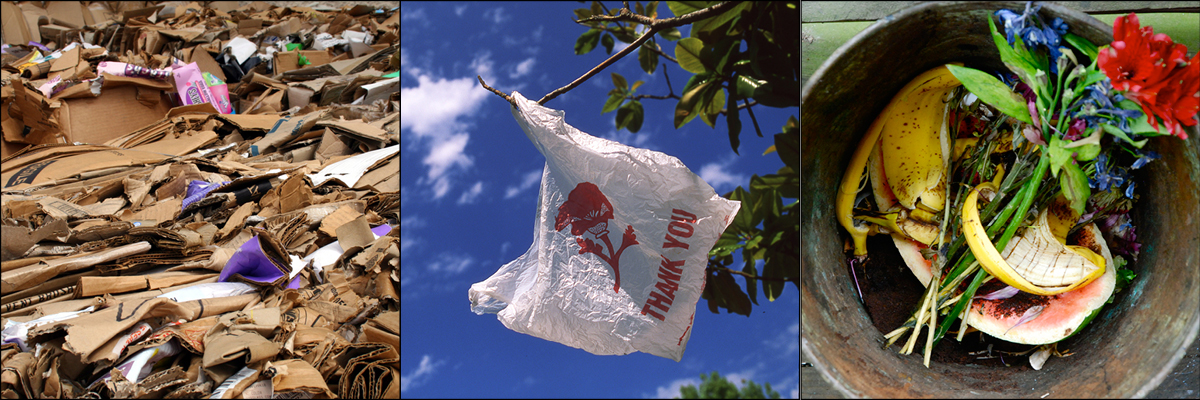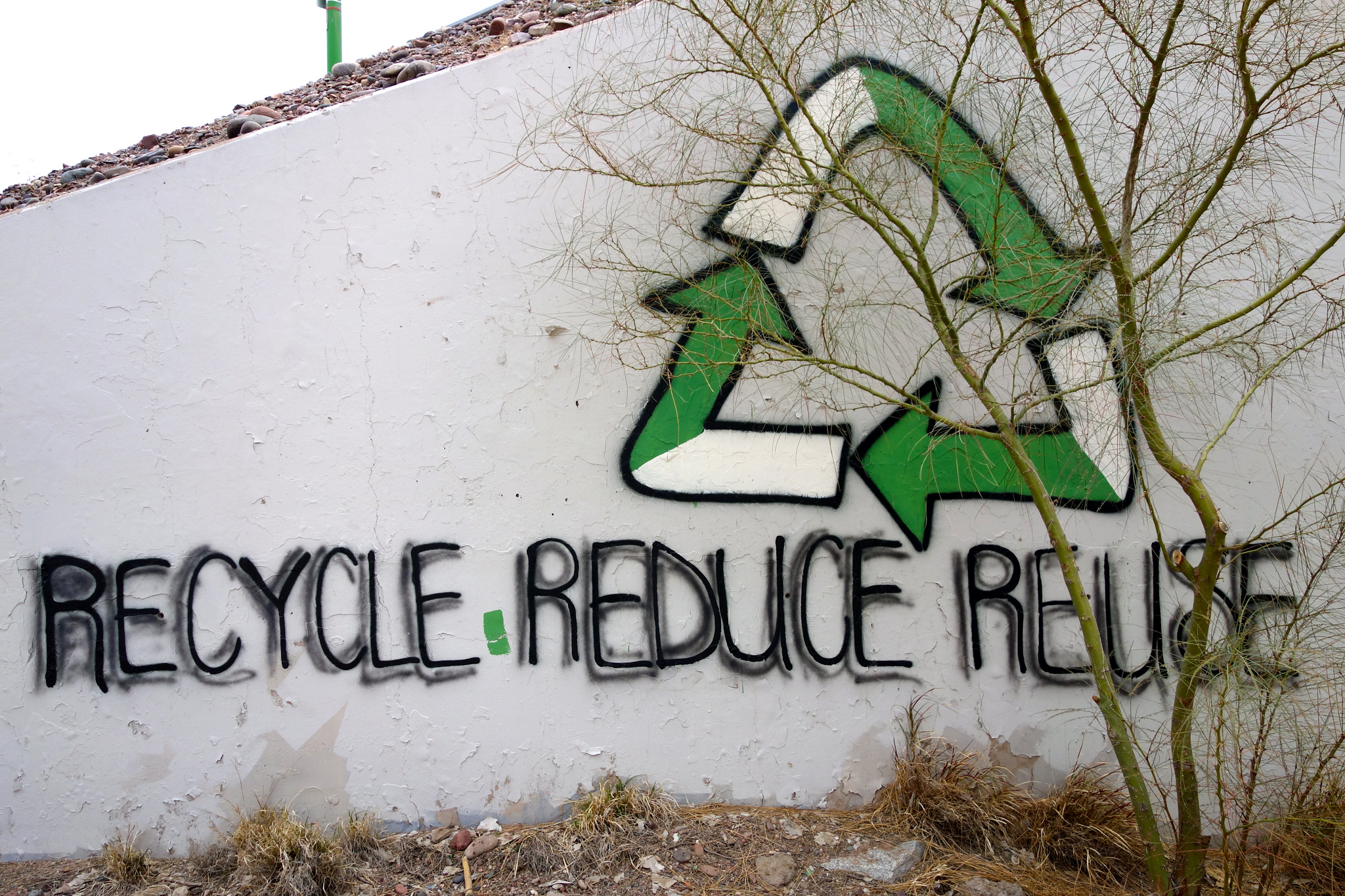The Bay Area is a national leader in waste-reduction and recycling. Reducing solid waste and improving resource management are front and center in the Bay Chapter agenda.
As recycling became common in the 1980s, many states aimed to reduce garbage being dumped by 20, 30, 40, or even 50 percent. As these goals were easily met, the question emerged: “What next?” The concept of Zero Waste became the new rallying cry for those wishing to conserve precious natural resources while simultaneously reducing the toxic effects of waste disposal. Around the world and in California, cities adopted Zero Waste goals, hoping to eliminate garbage 10, 20, and 30 years in the future.
The concept of Zero Waste is simple: eliminate wasting! In our complex economy, products must be designed to be cycled — just as nature has always done. In a Zero Waste world everything needs to be bio-compatible and toxic-free. In a Zero Waste world today’s discards endlessly become tomorrow’s resources. There is a place for every discarded thing, and everything in its right place. The only good garbage can is an empty one that never gets used!
Implementation, of course, is the problem. Publicly supported “waste services" are designed to make it easy to toss unwanted items to that mythical place known as “away”. We pay for the simple service of solid-waste/recycling pick-up but are never charged for the environmental destruction caused by the extraction, processing, and discharge into the environment of the energy and materials used to create the products we throw away. How do we change this?

Zero Waste Committee
The Bay Chapter's Zero Waste Committee is one of the most informed and articulate collections of Zero Waste advocates in the United States. The committee’s knowledge and commitment to Zero Waste has been forged on the anvil of experience. Our job is to blow away the smoke, mirrors, and urban myths perpetuating our society’s proclivities for wasting resources. The committee keeps a watchful eye on legislation and provides technical assistance to local government agencies and ongoing advice to Sierra Club committees and staff.
The committee includes the founders and the operation managers of Urban Ore (a Berkeley legend for materials re-use), three former presidents of the Northern California Recycling Association, the director of research for SPRAWLDEF (the Sustainability, Parks, Recycling And Wildlife Legal Defense Fund), the operations chief for San Francisco's recycling collections and processing program, the former director of New Zealand's Waste-Minimization Association, the president of Sustainable Marin, the national vice president of zero-waste practice for a national engineering firm, and the author of the Introduction to Recycling textbook.
The Bay Chapter has led numerous campaigns in the following areas to stop waste and mitigate the damages it causes:
- Don't burn, don't bury —block the construction of dumps, landfills, and incinerators, which release toxic substances into the environment
- Conservation — reduce waste so that resources can be saved for their highest and best uses
- Single-use products — eliminate disposable products like plastic bags
- Organics — bring home collection of “full-spectrum organics” (compostables) to all Bay Area residents
- Environmental damage — mitigate the harm caused by waste disposal
- Bio-hazards — eliminate products that pose a threat to the health of humans and nature
- Take-back programs — encourage community/industry-partnerships to reduce waste going to landfills
- Living wages — raise the wage for recycling workers
- Zero Waste infrastructure — invest in construction and demolition yards, resource-recovery parks, secondary-product manufacturing, repair shops, reuse products and shops, clean-stream material recovery

Policies for the future
In the above areas the Sierra Club has clear positions. The Zero Waste Committee also discusses the unresolved issues of the future. Recycling of basic used materials such as paper, glass, metals, and plastics has stabilized, but recycling of other products and materials has been harder to establish; currently featured are mattresses, pharmaceuticals, paints, and household batteries.
Currently a most perplexing resource-conservation issue for the committee is “Extended Producer Responsibility (EPR)”: "making the manufacturer of the product responsible for the entire life-cycle of the product and especially for the take-back, recycling and final disposal" (from Thomas Lindhqvist, "Towards an [EPR]-analysis of experiences and proposals”).
Twenty years ago this idea seemed like a tremendous advance for keeping all sorts of items out of the waste stream, but problems have emerged. Local governments often favor EPR, since it relieves them of the costly responsibilities of materials management. State laws now require producers to create markets for certain used products and materials at the end of their useful lives. Some industries accept this, others resist strongly, and still others demand watered-down legislation.
The deeper problem, though, is: once manufacturers take back their products, what will they do with them? We would like to see them reuse the items when possible, and when reuse is not possible, to recycle the component materials and use them for their highest and best uses. But in too many cases materials are being collected under EPR for incineration or disposed of in ways that allow toxic components to escape into the environment. Thus, the work of the Zero Waste Committee continues!
Get Involved
The Zero Waste Committee welcomes one and all to participate in our deliberations. To get learn more and get involved, contact the Committee Chair.
Read More
Read more about zero waste issues on our blog.